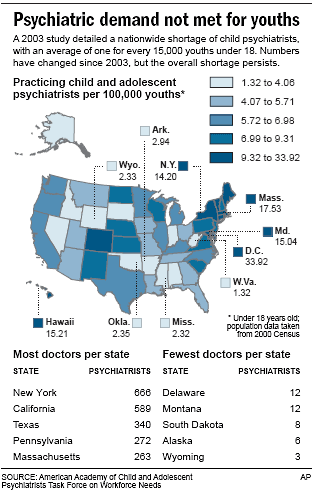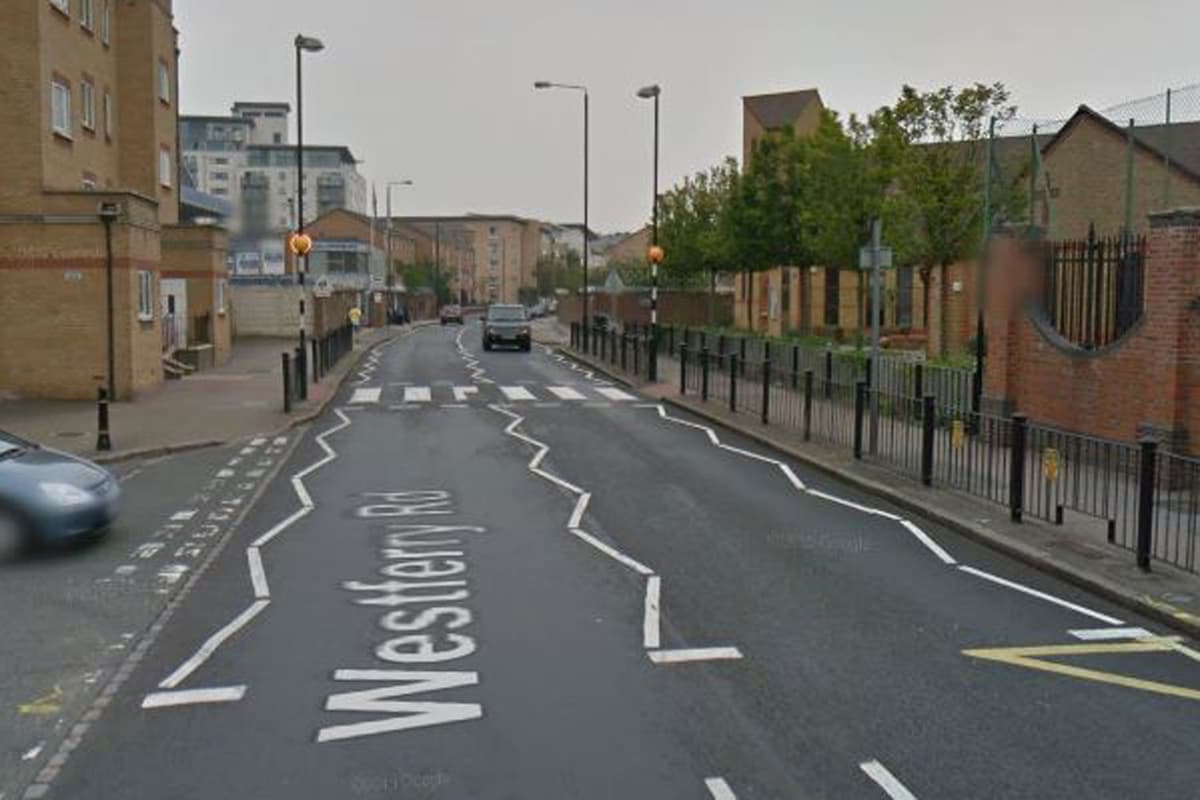Ghana's Mental Health Crisis: A Critical Shortage Of Psychiatrists

Table of Contents
The Stark Reality: Quantifying the Psychiatrist Shortage in Ghana
The disparity between the demand for and supply of psychiatric care in Ghana is stark. Reliable statistics on the precise number of psychiatrists are challenging to obtain, but existing data paints a grim picture. Comparing Ghana's psychiatrist-to-population ratio to international standards reveals a significant gap, leaving many Ghanaians without access to essential psychiatric care.
- Limited Access: The number of psychiatrists per capita in Ghana is drastically lower than recommended by the World Health Organization (WHO), resulting in significantly limited access to specialist care, particularly in rural areas. Many rural communities have no access to a psychiatrist at all.
- Unequal Distribution: Access to mental healthcare is heavily skewed towards urban centers, leaving those in rural areas severely underserved and further exacerbating existing health inequalities. Travel distances and economic constraints prevent many from seeking help, even when it is available.
- Extensive Waiting Times: The shortage leads to excessively long waiting times for appointments and treatment, often delaying crucial interventions and worsening the condition of individuals struggling with mental illness. Waiting lists can extend for months, if not years, depending on the location and severity of the case.
- Untreated Mental Illness: A substantial portion of the population suffering from mental illnesses remains untreated, contributing to a significant social and economic burden on individuals, families, and the nation as a whole. Estimates suggest that a large percentage of mental illnesses in Ghana go undiagnosed and untreated.
Underlying Causes of the Crisis: More Than Just a Numbers Game
The psychiatrist shortage in Ghana is a multifaceted problem stemming from various interconnected factors. It's not simply a matter of insufficient numbers; it's a systemic issue demanding a holistic approach.
- Inadequate Funding: Insufficient funding for mental health within the national budget severely limits investment in training programs, infrastructure development, and the recruitment and retention of mental health professionals. Limited resources hinder the expansion of services and outreach programs.
- Social Stigma: The pervasive stigma surrounding mental illness in Ghana significantly hinders help-seeking behavior. Fear of social judgment and discrimination prevents many individuals from seeking professional help, further contributing to the crisis. Education and awareness campaigns are crucial to combat this stigma.
- Brain Drain: Many qualified Ghanaian mental health professionals seek better opportunities abroad, leading to a further depletion of the already limited workforce. Competitive salaries and improved working conditions in other countries attract skilled professionals away from Ghana.
- Lack of Infrastructure: Insufficient mental health infrastructure, including a shortage of well-equipped facilities and community-based mental health services, hinders the provision of quality care. Limited resources and capacity in existing facilities further exacerbate the problem.
Consequences of the Shortage: The Human Cost
The consequences of the psychiatrist shortage in Ghana are devastating, extending beyond mere statistics to profoundly impact individuals, families, and society.
- Increased Suffering and Disability: Untreated mental illness leads to increased suffering, disability, and reduced quality of life for countless individuals. The lack of access to appropriate care delays recovery and can lead to chronic conditions.
- Family and Community Burden: Families and communities bear a significant burden in caring for individuals with untreated mental illness, often lacking the resources and support to cope effectively. This can strain familial relationships and community resources.
- Economic Impact: Untreated mental illness significantly impacts productivity and economic output. Lost workdays, reduced productivity, and increased healthcare costs associated with managing severe mental health complications place a substantial strain on the national economy.
- Higher Suicide Rates: The lack of access to timely and effective mental healthcare contributes to higher rates of suicide and self-harm among vulnerable populations. Early intervention and access to care are vital in preventing such tragic outcomes.
Potential Solutions: Investing in Ghana's Mental Health Future
Addressing Ghana's mental health crisis requires a multi-pronged approach involving significant investment and systemic change.
- Increased Funding: Substantial increases in funding for mental health are crucial to support training programs, infrastructure development, and the recruitment and retention of mental health professionals. A dedicated mental health budget is essential.
- Stigma Reduction: Large-scale public awareness campaigns are needed to reduce stigma associated with mental illness and promote help-seeking behavior. This includes educating the public about mental health conditions and available resources.
- Improved Retention Strategies: Ghana needs to implement strategies to retain trained mental health professionals within the country, such as offering competitive salaries, better working conditions, and opportunities for professional development. This involves creating a supportive and rewarding work environment.
- International Collaboration: Collaborating with international organizations can provide valuable support and resources to strengthen mental health systems in Ghana. This includes technical assistance, capacity building, and funding opportunities.
- Integration into Primary Care: Integrating mental healthcare into primary healthcare settings can improve access to early intervention and treatment for individuals with mental health conditions. This ensures that mental health is addressed alongside physical health.
Conclusion
Ghana's mental health crisis is a severe and multifaceted challenge, largely driven by a critical shortage of psychiatrists and other mental health professionals. The consequences are far-reaching, impacting individuals, families, and the nation's economy. Addressing this crisis demands immediate and sustained action, including increased funding, stigma reduction, improved retention strategies, and international collaboration. We must prioritize investment in mental health infrastructure, training, and public awareness campaigns to ensure access to quality mental healthcare for all Ghanaians. Let's work together to overcome this critical shortage and build a healthier future for Ghana. Support organizations working to address Ghana's mental health crisis and advocate for policy changes to improve access to mental healthcare. Learn more about how you can contribute and help build a more supportive and equitable mental health system for all Ghanaians.

Featured Posts
-
 No Improvement For Havertz Souness On Arsenals Struggling Star
May 02, 2025
No Improvement For Havertz Souness On Arsenals Struggling Star
May 02, 2025 -
 Xrp Price Prediction Analyzing The Potential For A 10 Surge
May 02, 2025
Xrp Price Prediction Analyzing The Potential For A 10 Surge
May 02, 2025 -
 Krispiga Kycklingnuggets I Majsflingor Enkel Asiatisk Sallad Recept
May 02, 2025
Krispiga Kycklingnuggets I Majsflingor Enkel Asiatisk Sallad Recept
May 02, 2025 -
 Trumps Influence Xrp Price Reaction To Recent Article
May 02, 2025
Trumps Influence Xrp Price Reaction To Recent Article
May 02, 2025 -
 Riot Fest 2025 Lineup Green Day Weezer Headline
May 02, 2025
Riot Fest 2025 Lineup Green Day Weezer Headline
May 02, 2025
Latest Posts
-
 Unprovoked Hate Crime Family Torn Apart By Racist Violence
May 10, 2025
Unprovoked Hate Crime Family Torn Apart By Racist Violence
May 10, 2025 -
 Strengthening Allyship A Guide For International Transgender Day Of Visibility
May 10, 2025
Strengthening Allyship A Guide For International Transgender Day Of Visibility
May 10, 2025 -
 Brutal Racist Killing Shatters Family A Community Grieves
May 10, 2025
Brutal Racist Killing Shatters Family A Community Grieves
May 10, 2025 -
 Family Devastated Unprovoked Racist Murder Leaves Loved Ones Broken
May 10, 2025
Family Devastated Unprovoked Racist Murder Leaves Loved Ones Broken
May 10, 2025 -
 International Transgender Day Of Visibility Three Steps Towards Inclusion
May 10, 2025
International Transgender Day Of Visibility Three Steps Towards Inclusion
May 10, 2025
